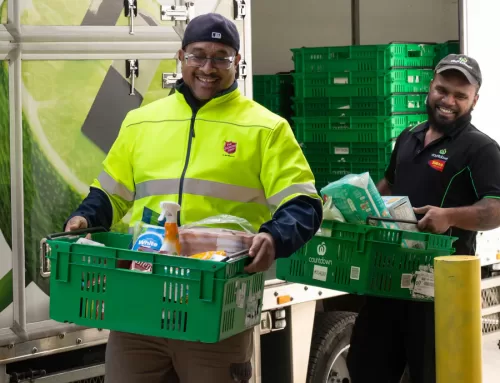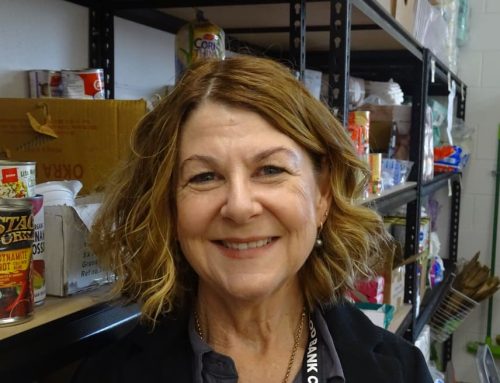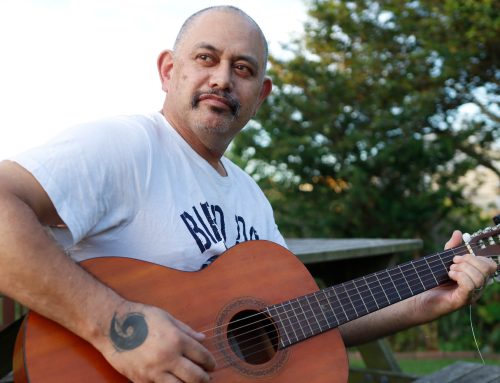I didn’t have any wisdom around my finances and there was no order, I was in debt. It’s not like I would go out and shopaholic, I just, like I said, I didn’t have any wisdom. —
One year ago secondary school te reo teacher Chanel Ngaruhe made a resolution: She would become debt-free.
And she did it in 12 months with the support of Christians Against Poverty, knocking $36,000 of debt on the head.
At a time of year that people routinely make resolutions to change their lives, what lessons can we learn from Ngaruhe’s transformation?
Ngaruhe didn’t have the wealthiest of childhoods, and says she grew into an adult who lacked wisdom around money.
“I didn’t have any wisdom around my finances and there was no order, I was in debt. It’s not like I would go out and shopaholic, I just… didn’t have any wisdom,” she recalls.
In other aspects of her life Ngaruhe was a high-performer, inspiring teenagers to connect with Māori culture.
Money coach Lynda Moore says this split of capability in some areas of life, and lack of capability around personal finances, is common.
“That sounds like my typical client,” says Moore, and those clients include successful professionals and businesspeople.
People who lack skills, and confidence in a particular area of their lives, often neglect it, procrastinating on doing the things they may even know that should.
“That makes it worse,” Moore says.
Moore praised Ngaruhe for being specific with her goal, because research into resolutions indicates specifying a goal precisely, lifts the resolver’s chance of achieving it.
“Resolutions. You set them by the first of January, but by the time you’ve got to February, it’s gone out of the window. That’s because it’s a dream, not a goal,” Moore says.
“This lady was really clear. In 12 months time I want to have repaid $30,000 of debt. That’s a goal,” Moore says.
Setting a specific goal enables detailed planning, Moore says.
The second lesson Moore sees from Ngaruhe’s success is to have support, or as she puts it, “an accountability buddy”.
“As I say to clients, I have nagging rights,” she says.
For someone on a journey, who may falter in their resolution, having support is very important.
“We’re going to fall off the wagon. We are going to make mistakes. The car is going to break down. It’s just part of life. Accept it as part of life,” she says.
A Christians Against Poverty financial mentor provided Ngaruhe’s support, though she is also clear that she had support from God, too.
Asking for support can be hard.
“It’s really hard to be vulnerable,” says Ngaruhe. “It was hard to allow someone in, in that space, because for so long I had so much guilt, so much shame.”
When people ask Christians Against Poverty for help getting out of debt, it provides systems, teaching and support, helping people make budgets, and negotiating deals with lenders to reduce debt.
People pursuing their goals alone can use technology to help them.
David Boyle from Mint Asset Management, who used to be the head of investor education at Te Ara Ahunga Ora Retirement Commission, says planning, combined with automated systems, can be very powerful.
“Invest in time for you. This might mean working out how to get a deposit for your first home, reviewing investment goals with KiwiSaver, or how much income you need in retirement,” he says.
If the goal is to increase your retirement savings, lifting the amount that is deducted from your pay to go into KiwiSaver only has to be done once, and the savings will start to mount up.
Christians Against Poverty chief executive Sam Garaway says: “When I think of New Year’s resolutions and finances I usually try to set something achievable.

“The saying ‘look after the cents and the dollars will take care of themselves’ is a good one to keep in mind. So many little things we do add up: a coffee here, buying lunch there.
“Being diligent and faithful with little things makes a big difference in the longer term: two coffees per week adds up to $520 a year or $32,000 across adulthood,” he says.
Moore would also have people think about the deeper purpose behind their resolution.
The idea of being debt free may ultimately be about something far more important to a person, she says.
Ngaruhe agrees. “If I was to picture it right now in my head I’ve got a picture of chains, just falling off, that’s what I can see, if that makes sense,” she says.
She describes 2021 as her “butterfly” year when she was able to reemerge transformed into the person she should be.
And now, when her kids need something, she is able to buy it from cash.
“They’re like, ‘Oh, Mum, are we going to get that?’ And I was like, ‘Yeah, we can afford it.’ And they’re like, ‘Whoa’,” she says.
But, perhaps more importantly, she now feels she can give them what she did not have when she was young: A money role model.
“This can be a generational thing. I want to teach my kids wisdom around money and spending. I don’t want them to go through the same heartache that I did,” she says.
And then, they can teach their children, she says.




